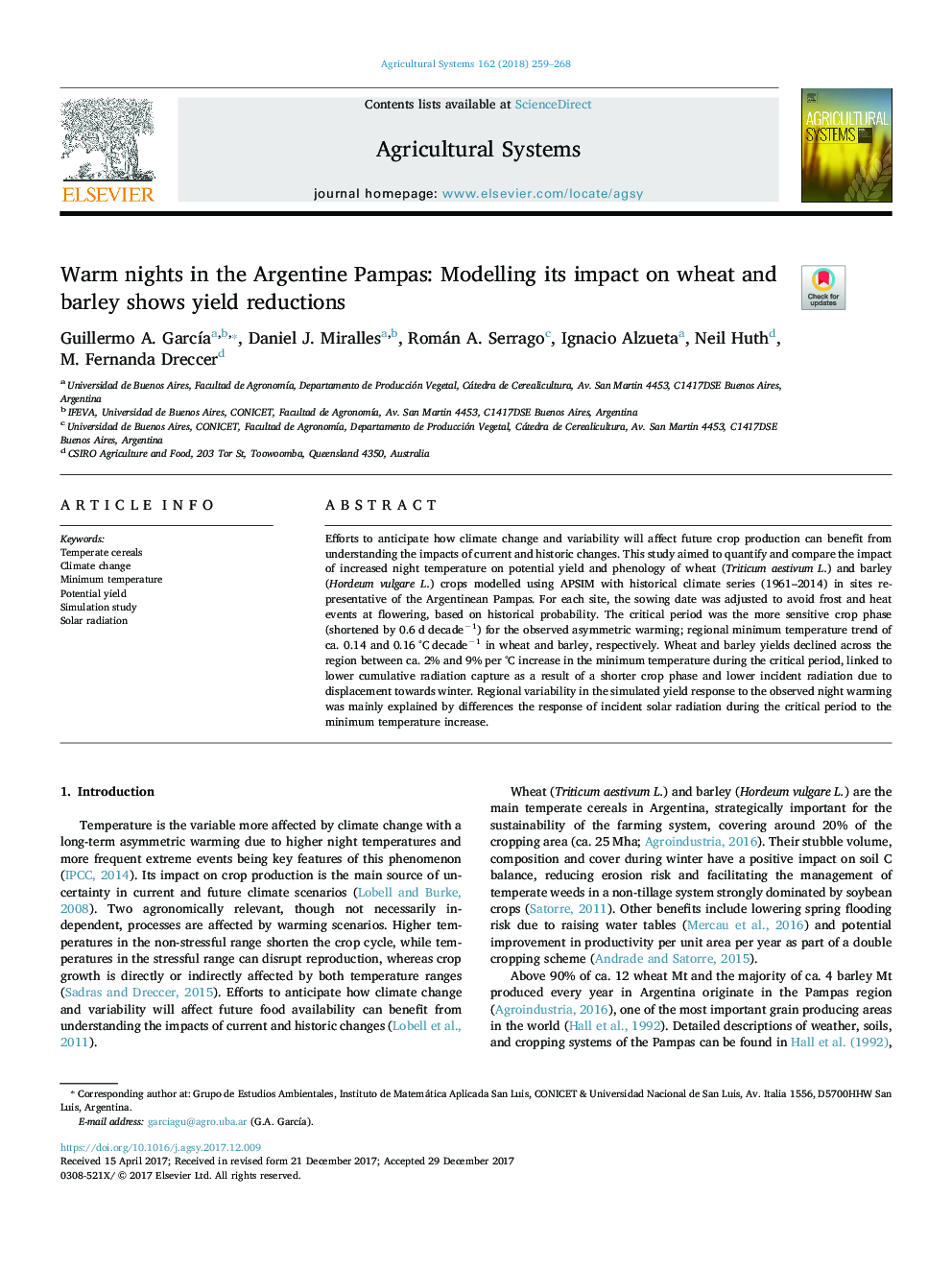| کد مقاله | کد نشریه | سال انتشار | مقاله انگلیسی | نسخه تمام متن |
|---|---|---|---|---|
| 8875043 | 1623208 | 2018 | 10 صفحه PDF | دانلود رایگان |
عنوان انگلیسی مقاله ISI
Warm nights in the Argentine Pampas: Modelling its impact on wheat and barley shows yield reductions
دانلود مقاله + سفارش ترجمه
دانلود مقاله ISI انگلیسی
رایگان برای ایرانیان
کلمات کلیدی
موضوعات مرتبط
علوم زیستی و بیوفناوری
علوم کشاورزی و بیولوژیک
علوم کشاورزی و بیولوژیک (عمومی)
پیش نمایش صفحه اول مقاله

چکیده انگلیسی
Efforts to anticipate how climate change and variability will affect future crop production can benefit from understanding the impacts of current and historic changes. This study aimed to quantify and compare the impact of increased night temperature on potential yield and phenology of wheat (Triticum aestivum L.) and barley (Hordeum vulgare L.) crops modelled using APSIM with historical climate series (1961-2014) in sites representative of the Argentinean Pampas. For each site, the sowing date was adjusted to avoid frost and heat events at flowering, based on historical probability. The critical period was the more sensitive crop phase (shortened by 0.6 d decadeâ1) for the observed asymmetric warming; regional minimum temperature trend of ca. 0.14 and 0.16 °C decadeâ1 in wheat and barley, respectively. Wheat and barley yields declined across the region between ca. 2% and 9% per °C increase in the minimum temperature during the critical period, linked to lower cumulative radiation capture as a result of a shorter crop phase and lower incident radiation due to displacement towards winter. Regional variability in the simulated yield response to the observed night warming was mainly explained by differences the response of incident solar radiation during the critical period to the minimum temperature increase.
ناشر
Database: Elsevier - ScienceDirect (ساینس دایرکت)
Journal: Agricultural Systems - Volume 162, May 2018, Pages 259-268
Journal: Agricultural Systems - Volume 162, May 2018, Pages 259-268
نویسندگان
Guillermo A. GarcÃa, Daniel J. Miralles, Román A. Serrago, Ignacio Alzueta, Neil Huth, M. Fernanda Dreccer,